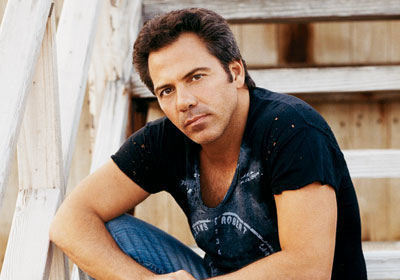Platinum Equity Buys Four Winns, Glastron, Wellcraft, Ranger
Who or what is “Platinum Equity” -- and -- what is it doing owning some of the best boat brands in America? Why did it buy these grand boat companies in the first place? Four Winns, Glastron, Wellcraft and Ranger are all boating icons. They have been around for years and have a rich heritage. At one time in their lives, both Glastron and Wellcraft were the largest selling brands in America. Today, and for much of the last decade, Ranger has been the largest selling fiberglass bass boat. Likewise, for many years Four Winns has been the largest selling premium sportboat brand. None of these brands are virgins and all have been bought and sold before.
Platinum Equity is a leveraged buyout firm owned by Tom Gores, its founder, chairman and CEO. Gores is a self-made financier with an estimated net worth of $2 billion dollars, according to Forbes magazine. He was ranked in 2009 by Forbes as the 334th-richest person in the world. He lives in Beverly Hills, California with his wife and three children and is 46 years old.
 At 46, Tom Gores is one of the richest persons in the world. |
“Platinum is known for buying struggling units of Fortune 500 companies and quickly cleaning house, cutting jobs, and honing the company’s product focus,” said an Oct 7, 2009 article in the Boston Globe. “Platinum usually sells its companies within five to seven years, although it continues to own 29 businesses it bought over the years." Platinum’s record shows it is more than a one-dimensional dis-assembler of companies. The Boston Globe article went on to say--
“One of Platinum’s most successful deals was the 2006 acquisition of PNA Group Inc., an Atlanta steel distributor, for $18 million. Platinum resold the company two years later for $450 million, or 25 times its original investment, to Reliance Steel & Aluminum Co. of Los Angeles. Though consummated faster than most of its deals, the PNA workout followed a typical pattern: Platinum fired a top executive, cut staff, and then bought several other related firms that helped the steel company grow into a profitable business.”
In the case of the Genmar boat companies it bought, the painful cutting down of staff and the trimming of corporate flab had long since happened over the course of two of the most punishing years ever in the boating industry. That leaves the subject of top management at the companies. All four of the brands have seasoned veterans running them who are also forward-looking and who regularly think out of the box. We don’t think that management is broken, and from what we are hearing, neither does Platinum Equity.
 Gores is involved with kids and coaches soccer. |
Tom Gores of Nazareth
While now a billionaire, Gores (pronounced: Gore-is) came from humble roots. Born to parents of Greek and Lebanese heritage, in Nazareth, Israel on July 31, 1964, he was 4 when his family immigrated to the United States from Israel. They settled in blue-collar Flint, Mich. He got his bachelor’s degree in 1986 at Michigan State University and sold computer software before moving to California to go into business with his older brother, Alec.
The Gores brothers first made money at Alec’s software company, Executive Business Systems, which he started in 1978 and sold in 1986 to Contel Corp., a telephone company, for $10 million, according to published reports. (A third brother, Sam Gores, is head of Paradigm Talent Agency, which represents film stars such as Philip Seymour Hoffman and Felicity Huffman and the television show “Desperate Housewives.’’)
All That Glitters
Early in his career Tom invested in small business where he says he developed his principals of empowerment, hard work and integrity. With success came larger and larger deals, easier access to capital, and a reputation for making things happen. It is reported that in the beginning, the Gores used their own money for deals, and therefore were able to keep all of the proceeds.
Platinum is Better Than Gold
Even after Tom Gores broke off to start Platinum in 1995, he followed this same funding model, until 2004 when he first raised money from outsiders for a $700 million fund. The fund, which focused on investing in companies in declining markets, earned 2.7 times the money invested, or a 118 percent gross return. He is currently investing a $2.75 billion fund he raised in 2008, also focused on distressed companies.
In 2009 Platinum Equity ranked #27 on Forbes’ Largest Private Companies in America list.
According to its website, Platinum has acquired over 100 companies, in a variety of industries, which had $27.5 billion in annual revenue in aggregate when acquired. Currently, there are 29 companies in its “portfolio”, according to its website.
 Platinum Equity has taken over ownership of the San Diego Union-Tribune in the face of the collapse of newspapers all over the country. Already it is in the black. |
Emphasis on “Operations”
Go to the Platinum Equity website and you will read that it is involved with “M&A&O” activities. “M&A” stand for mergers and acquisitions, and the “O” stands for operations. That one word sets it apart from more traditional M&A companies like Goldman Sachs, for example. It “operates” companies that it merges or acquires, in addition to buying them and then selling them, or taking a fee for recapitalizing or brokering a sale of a company.
The Platinum Equity website is a professional-looking explanation of what the company does. One particular sentence there caught our eye, and if true, it may well be the key to Tom Gores success. It says—
“Tom applies philosophies of swift and thorough diligence, sound acquisitions, effective management, and driving value through honest, intelligent operational improvement rather than financial engineering.”
We read this as meaning Tom does research to make sure he is only buying good companies with good management (or installs it if it is not there) which he can add value to by improving the product, its distribution, or its marketing (and maybe all three) – and not cutting expense for a quick profit and quick sale.
The Payoff
Since the four major boat brands Platinum Equity bought – Four Winns, Glastron, Wellcraft and Ranger – already have good management, good products, and zero fat, it will be interesting to see what the new owner can add to the operation. Certainly it will reap the benefit of the return of business from the depths of the Great Recession. Certainly the value of these brands in a normal economy is far higher than what Platinum Equity paid, so their bottom line should get better just by keeping them in business and bringing out new product.
The Boston Globe article said that the company had “an iron fist and a golden touch.”
“News executives at the Union-Tribune...said the firm’s executives quickly invested in computerized technology to replace a long-outmoded method of assembling the paper each day, and have already put it on stronger financial footing.
“They are smart businessmen who see the value of what journalism brings,’’ said Robert York, a senior editor at the Union-Tribune. “They came in here with a plan and their ears open, and so far it seems to be working.”
The Future Looks Bright
We hope all of that is true. We have seen encouraging signs the last several weeks. Irwin Jacobs remarked recently that the team at Platinum Equity are the most professional that he had ever worked with. "I trust these people,” Jacobs said. “We got to know them over the last three months...These people will do an incredible job. They have all the resources to work with. I think every factory and dealer will be happy with them, he said."